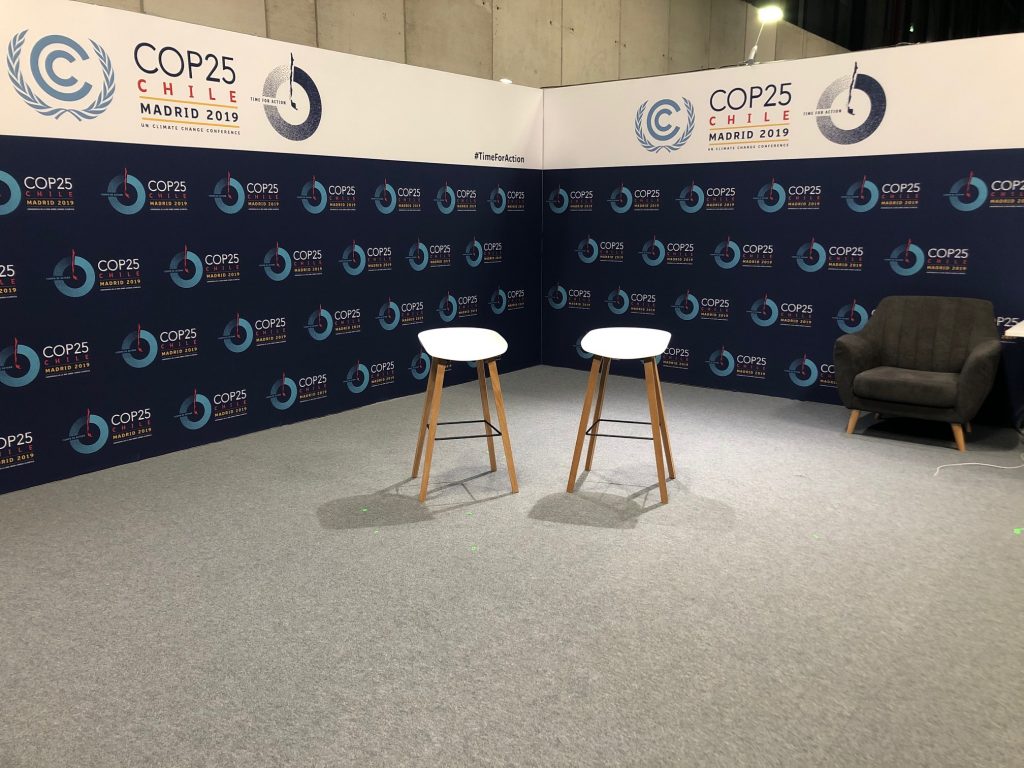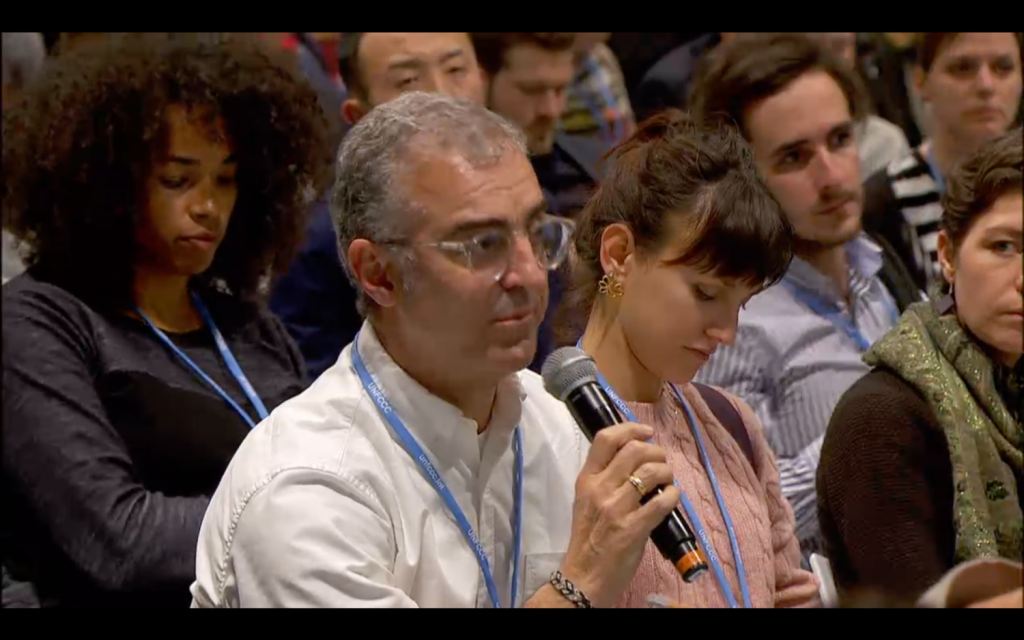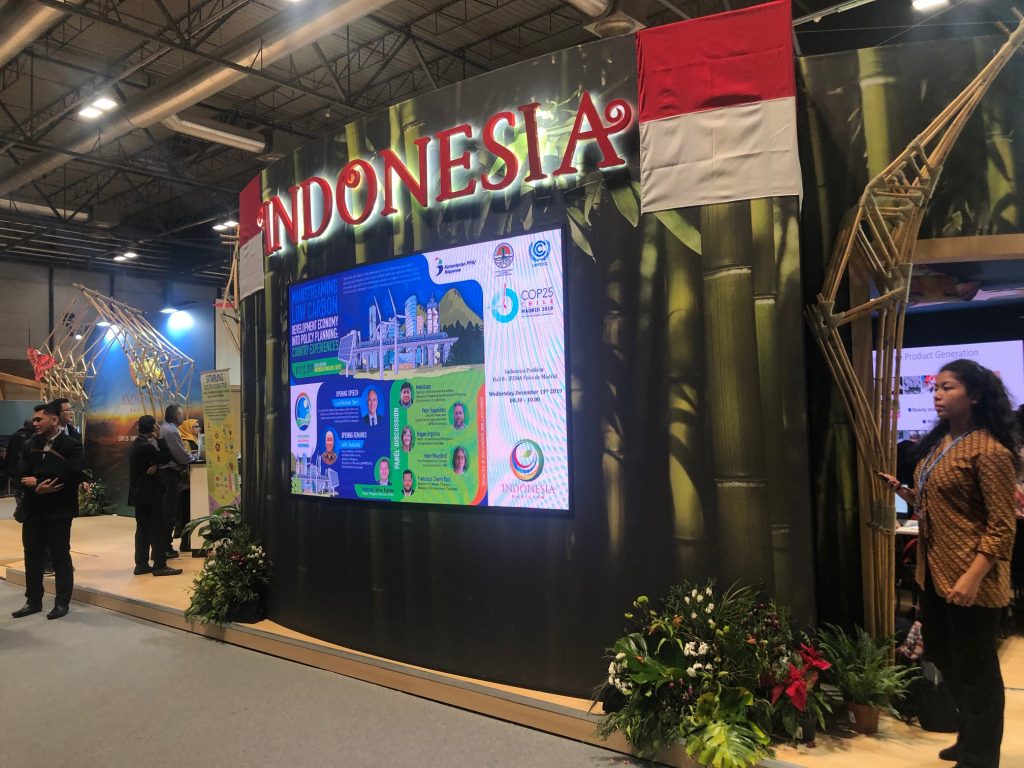
Two empty chairs on the set of a COP25 broadcast outlet seemed to symbolize the failing ambition and lack of integrity on display at the Madrid summit.
That’s not what hope looks like, is it? But those empty chairs, as soon as I saw them outside the main plenary hall at #COP25 in Madrid, I recognized a metaphor for this disturbing and deeply disappointing climate summit (story linked here).
Listen to Mohamed Adow, director of Power Shift Africa, whom I interviewed after a panel discussion in which he participated:
“In the last 10 years following the climate talks, none have never been as bleak and disappointing as this conference. The science is staring us in the face and school children are taking to the streets in their millions, and yet at the global climate summit countries are blocking progress and watering down climate action. It’s disgraceful and politicians are simply not doing their job of protecting the planet.
“We need to see countries committing to new and improved climate plans next year. That regular review and ratchet mechanism was what made the Paris agreement an effective tool for reducing emissions, but countries are dragging their feet and they are putting us all in danger.”
My final story from my sixth climate summit details what happened and didn’t happen, and in the final section, explains why. It all comes down to leadership. And until the U.S. reengages in this process in a positive, not destructive way, hopes for the Paris Agreement coming close to achieving its climate mitigation goals will be remote.

Seen here on a TV monitor in the media center, Ugandan activist Hilda Flavia Nakabuye pleads angrily with COP25 delegates: “Please listen: if you don’t know how to fix it, stop breaking it.”











